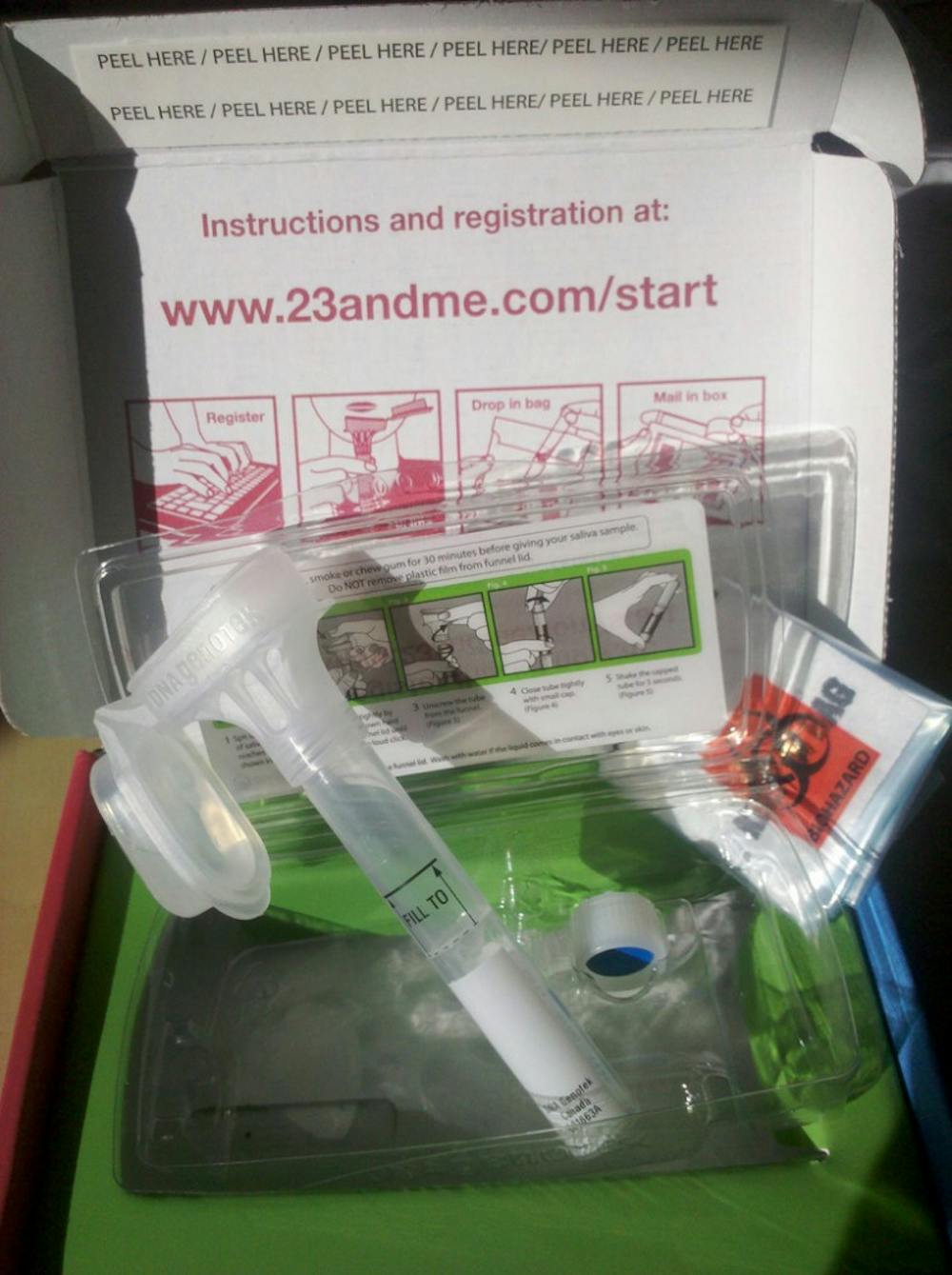23andMe is a genetic testing company that generates genetic health risk reports. It is distinguishable from other genetic testing resources as the only company providing information directly to consumers while meeting Food and Drug Administration standards. Recently, the FDA approved 23andMe to market reports for 10 additional diseases including Alzheimer’s disease and Parkinson’s disease.
23andMe currently offers two main services — a Health + Ancestry service for $199 and an Ancestry service for $99. The company requires a saliva sample to be mailed in for either service. According to a company representative, the Ancestry service allows consumers to trace their DNA to different populations around the world. The Health + Ancestry service also analyzes the DNA sample and generates over 70 genetic reports that detail risk factors for various conditions.
“You can learn about your genetic health risk for diseases like Parkinson's and late-onset Alzheimer's disease, carrier status for certain diseases, like cystic fibrosis or sickle cell anemia,” a company spokeswoman said in an email to The Cavalier Daily. “You can also learn how genetics affect your diet, such as caffeine consumption, response to saturated fats, ability to digest lactose and more.”
However, the results of these reports cannot be interpreted as a diagnosis of disease. The genetic reports do not include all possible risk factors for the included diseases, and there are often other environmental and lifestyle factors affecting the progression of a given disease. In addition, the presence of a specific risk variant does not guarantee development of the condition.
Mary Faith Marshall, Kornfeld Professor and director of the program in biomedical ethics at the Center for Biomedical Ethics and Humanities, said the main problem with genetic testing is that people are unable to interpret the results of these tests.
“I think that genetic testing should always occur in the context of genetic counseling because most people don't have the knowledge to interpret findings,” Marshall said. “And they also need — I would think — some professional guidance to understand not only what do the findings mean but what are their options moving forward.”
Marshall said data from genetic testing needs to be correctly interpreted by an expert, to understand the degree a person is affected by a condition. For instance, transcarbamylase deficiency disorder — a genetic disease impairing the body’s ability to metabolize proteins — has a partial form.
“If you have a full blown form of that genetic disease, then probably you're not going to live very long after you're born,” Marshall said. “If you have a partial form of it, then you can live for a long time with certain medications.”
According to Marshall, utilizing a genetic counselor to interpret the data and provide counseling also prevents individuals from being psychologically frightened by their results.
“It can be reassuring in a sense for some folks, in that it may help rule out their chances from a certain genetic disorder or it can reduce their uncertainty in the sense that they know whether they do have a propensity for something or they don't,” Marshall said.
23andMe continues to work with the FDA in expanding the range of genetic health reports the company can provide to consumers.
“Individuals can choose to use that information to take a more active role in their health by engaging in more meaningful discussions with their healthcare provider or simply becoming more motivated to take steps to a healthier life,” a 23andMe spokesperson said.







